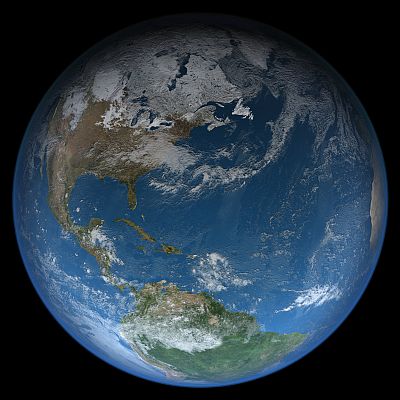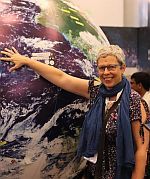GAM 2019 Blog
by Rosa Doran
- Published: Friday, April 26 2019 03:27

"The moment we put our eye to the telescope for the first time something magical happens very deep inside of us and life will never be the same again. "
- Chuck Ruehle
Astronomy, in my humble opinion, is the building block of human beings, literally. We know we are made of stardust, or at least some of us know this. We know our planet is part of the leftovers of the formation of our star, the Sun, or at least some of us know. We know our natural satellite, the Moon, was crucial for the emergence and evolution of life on Earth, or at least some of us know. We know space exploration and the understanding of our origins and possible future is eventually the key for our survival, or at least some of us know. I could continue the list of amazing and crucial discoveries science and the legion of resilient scientists brought to us and how little citizens in general know. This treasure of knowledge belongs to all of us.
As humans inhabiting this little paradisiacal rock that we call Earth, we are entitled to enlarge our horizons and aim for a fair and brighter future to all of us. I see no better way, to ensure this vision is accomplished, than a fair and equitable astronomy education endeavor. Most humans have no awareness of our place and scale in this vast Universe. Children memorize the name of the planets, scratch the understanding of celestial mechanics and stumble upon the real understanding of seasons and the influence of the Sun and Moon in our daily lives.
In 2019, a series of important celebrations related to astronomy are taking place: 100 years since Eddington’s observations in Principe Island (São Tomé and Príncipe) and Sobral (Brazil) finding one of the first strong evidences in favor of Einstein’s General Relativity Theory; the 50th anniversary of the Moon Landing bringing humans for the first time to the surface of another body in the solar system; 100 year of existence of the International Astronomical Union, the UN endorsed year of the periodic table of chemical elements , to name a few. Unique moments in science history, moments that forever changed the way we perceive our Universe. Yet, general relativity is oblivious to most educators, the Moon landing is questioned by millions of science illiterate individuals, very few know that most chemical elements are produced during the life cycle of a star. Just a few worrying remarks from a large list of evidences swamping us every day and clearly showing us that we need to change this. Most humans don’t know what it really means to be human.
The answer to all this challenges is hidden behind a solid EDUCATION. In the 21st century, the meaning of this word is completely different than at the time these discoveries were taking place. Nowadays, every toy shop has in the shelves, a cheap telescope (yet a much better piece of equipment than the one Galileo Galilei had). Observing the skies is not anymore the privilege of a few. Hands-on research opportunities are everywhere, in particular in the field of Astronomy where the laboratory of scientists is the sky, freely available to everyone. Students can be involved in real research experiences and help scientists with numerous tasks while learning curriculum content, a view totally in line with the acquisition of 21st century skills. The use of such opportunities should become a trend in EDUCATION. The experiences emerging from the field of astronomy research and their associated instruments make it easy to ensure EQUITY is in place, not equal opportunities for everyone but the necessary support to each individual. Teacher training opportunities are emerging everywhere but what we really need is EMPOWERMENT of educators, capacity building, where support is ensured before, during and after the training events, rather than training episodes.
To provide these opportunities, teacher’s training programmes have to have a truly ENGAGED team. Training and supporting educators is a very demanding task. It requires understanding the needs of educators, their social and cultural reality, their own specific personal needs and existing skills. Associating all of these elements with the understanding of our place in the cosmos and our connection to Earth global ENVIRONMENT, are the keys for the future leaders of our planet. Amateur astronomers from all over the world, the floor is yours to awake the curiosity of people and create the thirst for knowledge, the understanding that the sky belong to all of us and we are part of it, you are the key to that magic, that moment that can dictate a different and more fair future to the generation following us.
Image Credit: This image was generated for the NASA's "Know Your Earth" campaign.
https://svs.gsfc.nasa.gov/3876
| Rosa Doran, has a degree in Physics from Pontifícia Universidade Católica de São Paulo, an MsC in High Energies and Gravitation from the University of Lisbon and a PhD (in course) on Physics Education from University of Coimbra. She is currently the president of NUCLIO, a non profit organization and NGO for development devoted to science outreach and education. At an International level, she is the President of the Executive Council of the Global Hands-on Universe Association, vice-president of the Panel of Education of COSPAR and co-coordinator of the Portuguese Language Office of Astronomy for Development. |  |






